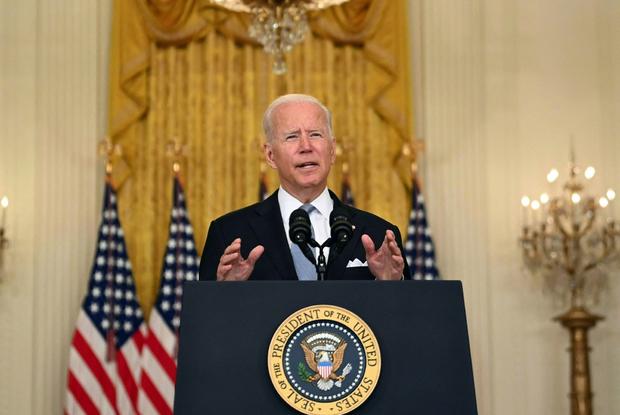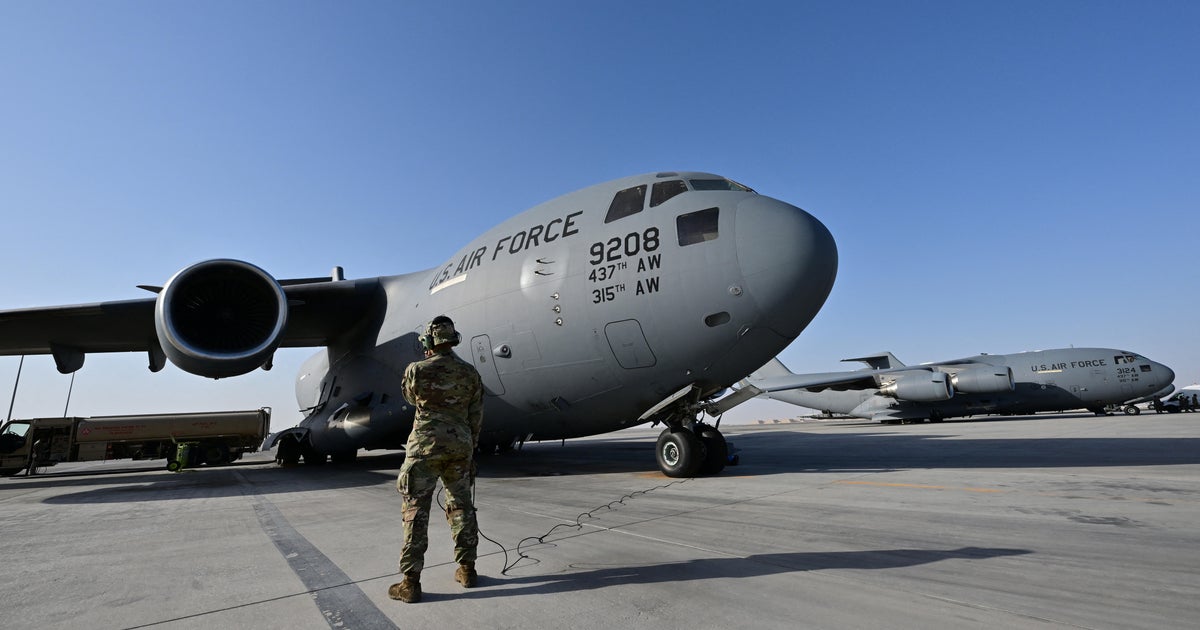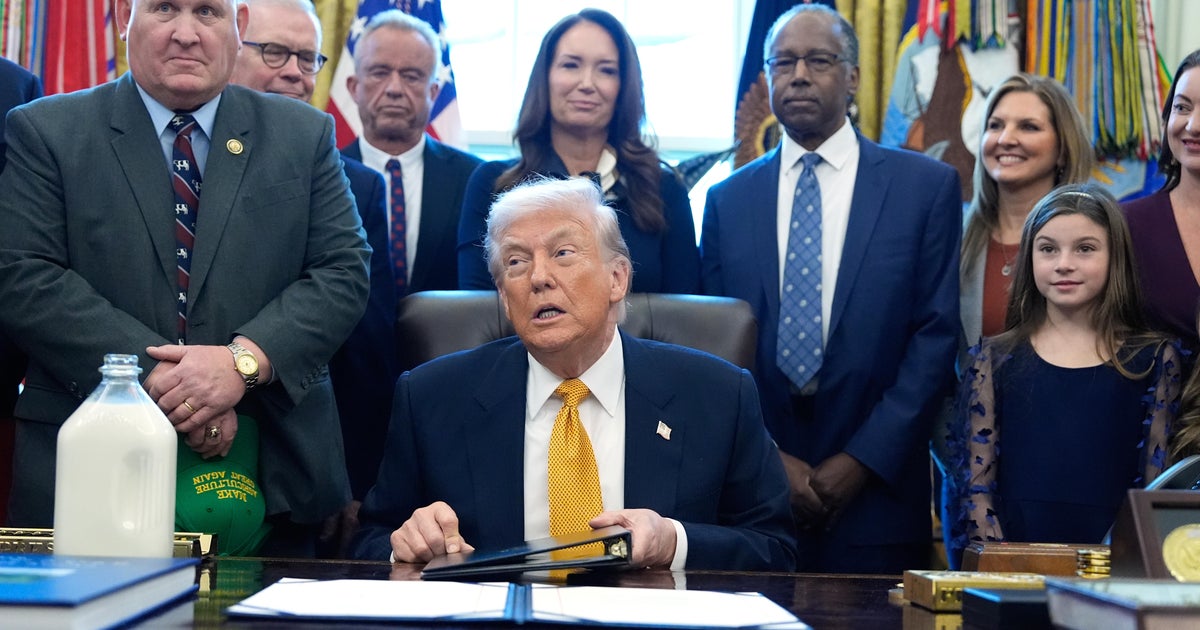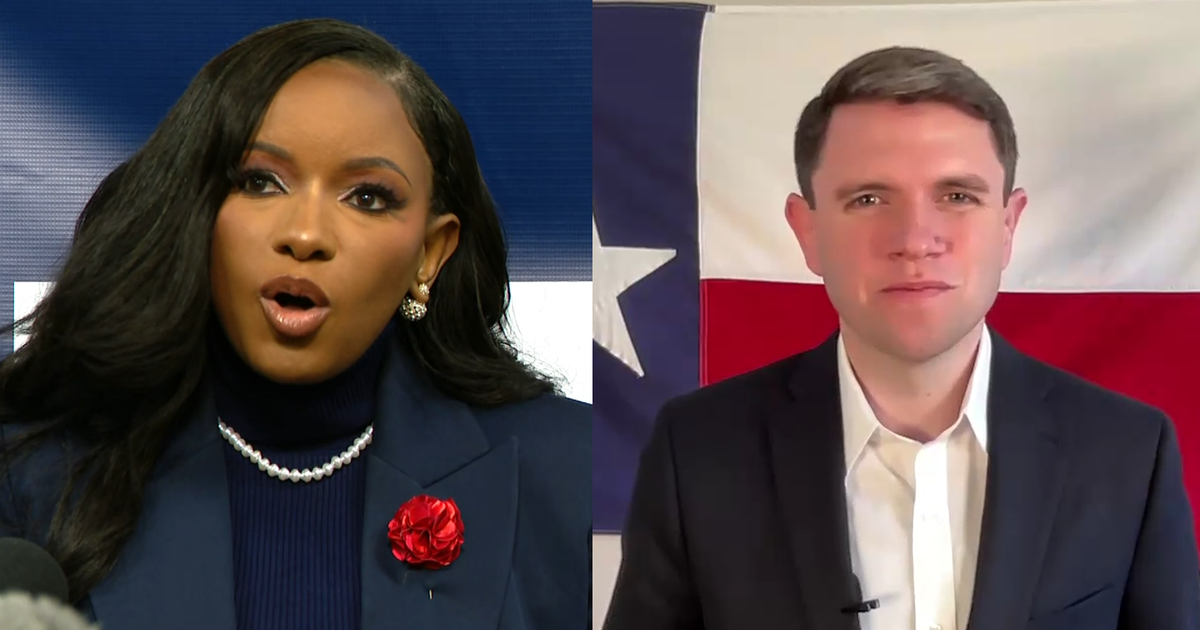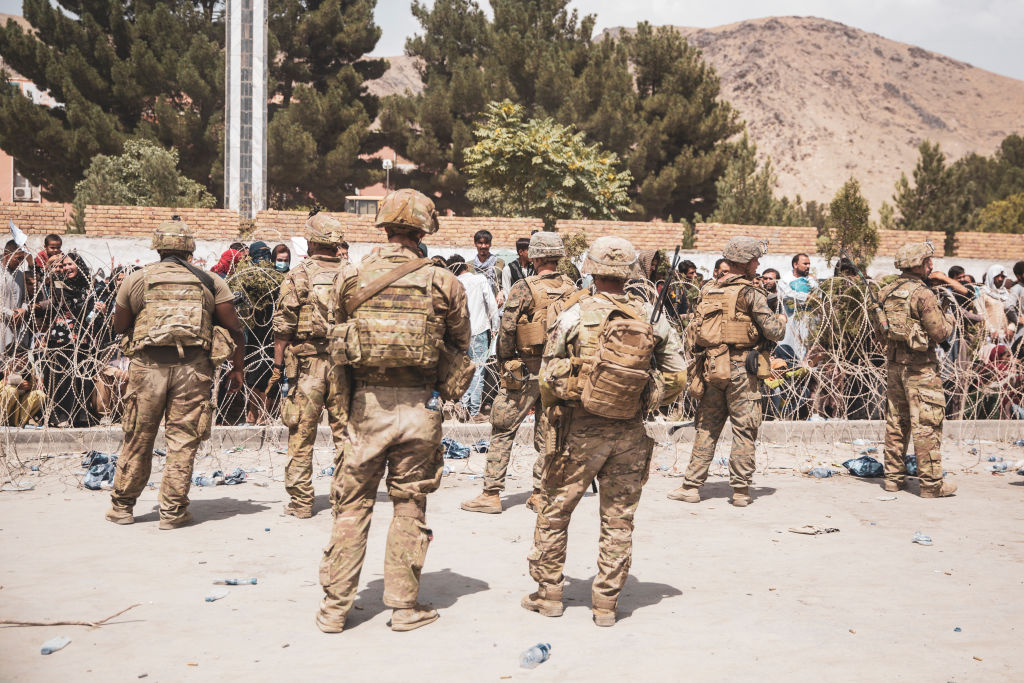Biden says "buck stops with me" and defends Afghanistan withdrawal
Washington — President Biden said he stands "squarely behind his decision" to withdraw U.S. forces from Afghanistan on Monday but admitted that the swift collapse of the central government caught the U.S. off guard, telling the nation "the buck stops with me" as chaotic efforts to evacuate U.S. personnel and Afghan allies from Kabul continue.
Addressing the nation for the first time since the Taliban took the capital on Sunday, the president did little to address pressing questions about why the U.S. failed to anticipate the rapid pace of the Taliban takeover or why the U.S. was not to prepared to evacuate Afghans who aided U.S. efforts over the years. He claimed many Afghans who assisted the U.S. were not evacuated sooner because they didn't want to leave and because the Afghan government discouraged it. The president took no questions after his remarks, and returned to Camp David on Monday afternoon.
"I stand squarely behind my decision," Mr. Biden said from the White House, defending his timeline for withdrawing U.S. troops. "After 20 years, I've learned the hard way that there was never a good time to withdraw U.S. forces."
Mr. Biden began his remarks by insisting the mission in Afghanistan, which the U.S. invaded in 2001 after the September 11 attacks, was "never supposed to be nation-building" and "never supposed to be creating a unified, centralized democracy." He said the only aim now is to stop terrorist attacks on the American homeland. Mr. Biden told the country he "inherited" former President Donald Trump's decision to withdraw troops from Afghanistan by the end of May, explaining that his only two choices were to follow through on that agreement or to escalate the conflict by sending thousands more U.S. troops to fight the Taliban.
Still, the president admitted, "this did unfold more quickly than we had anticipated." Afghan leaders gave up and fled the country, and the Afghan military refused to fight the advancing Taliban forces, he said.
"American troops cannot and should not be fighting in a war and dying in a war that Afghan forces are not willing to fight for themselves," Mr. Biden said.
The president said he made it clear to the Taliban that any attack on evacuating U.S. personnel would be met "with devastating force if necessary."
Mr. Biden did briefly address why the U.S. did not evacuate U.S. allies — Afghans who helped the U.S., such as interpreters — earlier. He claimed "some of the Afghans did not want to leave early, still hopeful for their country," and the Afghan government "discouraged us from organizing a mass exodus to avoid triggering, as they said, a 'crisis of confidence.'" But that isn't necessarily consistent with the backlog of thousands of Afghan applications for special immigrant visas.
Even as he placed blame on his predecessor and on the Afghan leaders, Mr. Biden said he accepts responsibility for the withdrawal, noting he didn't want a future president to have to make the difficult decision he did.
"I am president of the United States and the buck stops with me," Mr. Biden said. "I am deeply saddened by the facts we now face, but I do not regret my decision to end America's war-fighting in Afghanistan and maintain a laser-focus on our counterterrorism mission there and in other parts of the world."
In Kabul, the situation remains grim and fluid. A U.S. military official told CBS News' David Martin on Monday that U.S. troops had killed two armed Afghans who were part of the huge crowd that breached the airport perimeter, and reports said seven people have died in total. Sources tell CBS News about 100 embassy staff are still at the airport, operating what remains of the embassy.
Weijia Jiang, Ed O'Keefe and Christina Ruffini contributed to this report.
